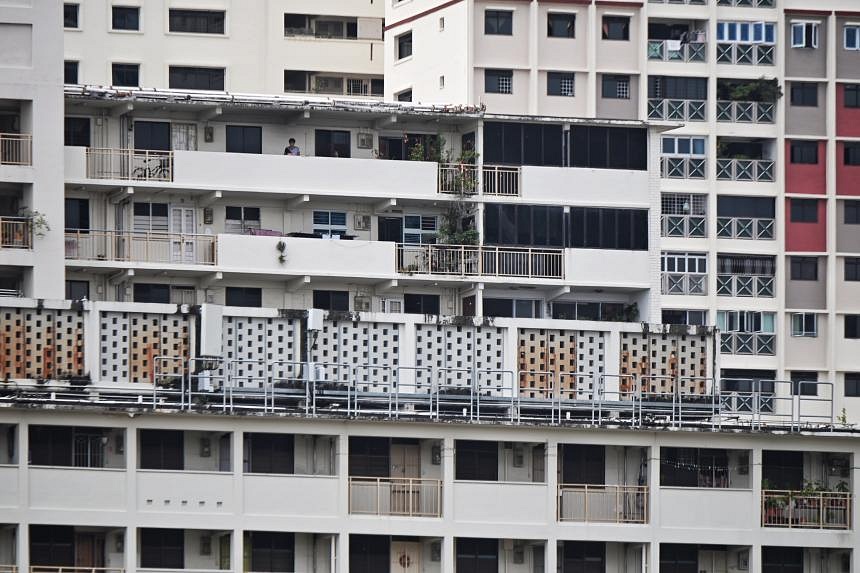Govt to set up dedicated unit to resolve serious noise disputes between neighbours
SINGAPORE - A new unit is slated to be formed by the end of 2023 to help resolve protracted and egregious disputes between neighbours over noise disturbances.
This group will be given the power to investigate disputes and stop certain nuisance behaviour, said Senior Minister of State for National Development Sim Ann on Thursday during the debate on her ministry’s budget.
It will also have stronger laws – such as mandatory mediation under the enhanced Community Dispute Management Framework (CDMF) – to resolve “serious cases that are beyond self-help”, she added in response to Mr Yip Hon Weng (Yio Chu Kang) and Mr Henry Kwek (Kebun Baru).
Mr Kwek had highlighted disputes arising from intentional anti-social behaviour, which Ms Sim said is a serious matter the Government is closely monitoring and studying.
She noted that there is a small set of severe cases where the conflict between neighbours becomes entrenched and acrimonious.
“Often, there are signs that at least one of the conflicting parties purposely weaponised noise to cause suffering to their neighbours over a prolonged period of time. We think this is wrong and that strong actions are needed to put a stop to this,” she said.
The Straits Times reported in 2020 that a couple was barred from their Bukit Panjang flat for a month after they were found to have breached an earlier court order to stop disturbing their neighbours in the unit above.
The couple finally sold their flat, ending the protracted dispute that began in 2017.
It was the first time an exclusion order had been issued by the Community Disputes Resolution Tribunal (CDRT) under the State Courts.
Cases where noise is used as a weapon to disrupt the peace among neighbours will be included under the new legal framework on mandatory mediation for community disputes.
Although government intervention could make a difference in some cases, Ms Sim stressed that the preferred mode of neighbourhood dispute resolution is to have both parties engage with each other.
Government intervention should not be a first resort.
“We do not wish to stunt the community’s capacity to resolve disputes early when they first occur. If people rely on government personnel in the first instance to deal with their neighbours, it can only weaken the kampung spirit over time,” she said.
Ms Sim said the new unit would be a part of – and not a substitute for – an interlocking system of norm setting, good neighbourly communication and the CDMF.
“By making their presence felt at critical points of dispute resolution, we hope that this unit of dedicated personnel can deliver the right amount of intervention, bring relief to those who have a genuine grievance, and discourage the wilful weaponisation of noise,” she said.
Addressing Mr Kwek’s question on how the new unit would enhance the current framework for community dispute mediation and how it would complement the existing efforts of grassroots organisations, Ms Sim said the intention is for the unit to work with existing officers, say, from the Housing Board or grassroot organisations, to help bring the cases to resolution.
The difference between the dedicated unit and existing agencies that handle such disputes from time to time would be that dedicated personnel would hopefully be able to go on site to corroborate reports that there have been noises at certain times and verify if those reports are true, said Ms Sim.
Another difference would be the investigative power the dedicated personnel will be given.
Ms Sim noted how grassroots and some government agency officers were unable to get very far with their efforts in resolving disputes without such power.
“Today, there is also no power to ask the person to cease and desist from making noise pending satisfactory mediation or otherwise resolution of the case. So that, I think, would be the difference,” she said.
In her speech, Ms Sim also noted that inter-floor noise has been identified as a major category of neighbourhood noise feedback.
To promote an understanding of the cause and effect of inter-floor noise disturbances, the Municipal Services Office (MSO) will be setting up an experiential space in the second half of 2023 to educate residents on socially acceptable noise levels and the ways that they can manage noise in their daily living.
MSO is studying a recommendation by the Community Advisory Panel on Neighbourhood Noise to extend the quiet hours by 1½ hours, from 10.30pm until 7am now, to 10pm until 8am.
MSO is also working with the panel to study how a quantitative noise threshold, in the form of a decibel limit, can be adopted to aid the identification and assessment of egregious cases.
To be meaningful, the decibel limit should cater to residential settings and not industrial or construction settings, said Ms Sim.
This article was originally published on The Straits Times.




No comments
Share your thoughts! Tell us your name and class for a gift (: